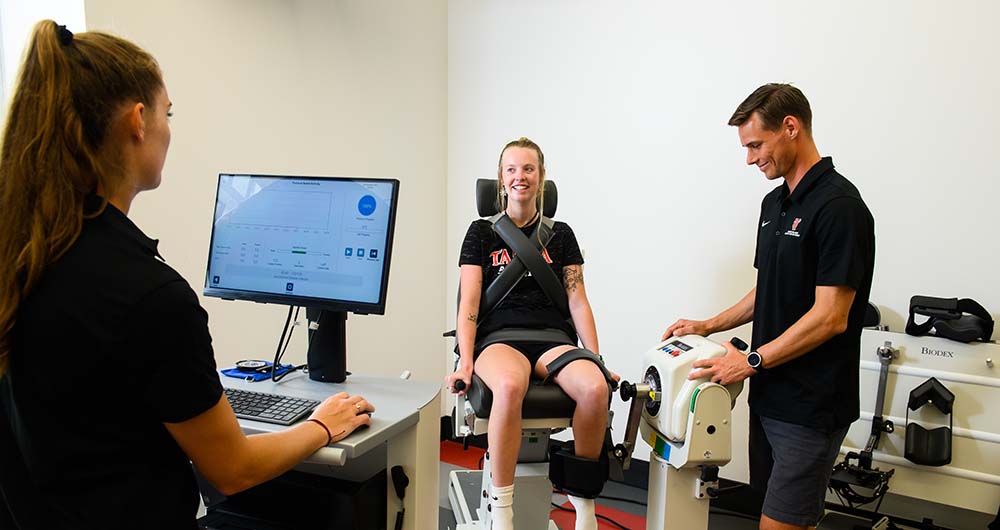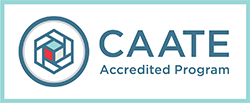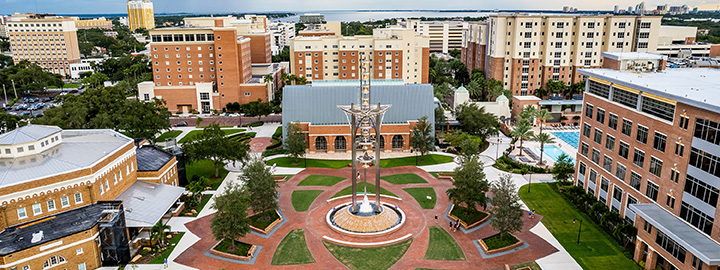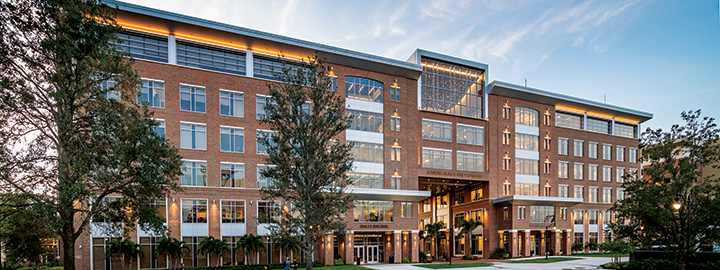
Athletic training encompasses the prevention, examination, diagnosis, treatment and rehabilitation of emergent, acute or chronic injuries and medical conditions. Athletic training is recognized by the American Medical Association (AMA), Health Resources Services Administration (HRSA), and the Department of Health and Human Services (HHS) as an allied healthcare profession.
The 3+2 Master of Science in Athletic Training (MSAT) program is divided into two components:
- Students who begin the program as direct-entry first-year students spend their first three years completing the required Spartan Studies coursework and required prerequisite courses. Direct-entry students who meet academic and professional behavior requirements continue into the two-year professional phase of the program after their third year.
- Students who begin as transitional students must complete the required Spartan Studies coursework and required prerequisite courses. Transitional students must apply for admission to the two-year professional phase through the ATCAS application system.
- The two-year professional phase of the program includes coursework in risk reduction, wellness and health literacy, critical incident management, examination and clinical diagnosis, therapeutic intervention, and rehabilitation of injuries and medical conditions. Students participate in clinical experiences each semester in a variety of practice settings.
- These students will earn a Bachelor of Science in Health Science degree upon successful completion of Year 4. Please note: students must have earned a minimum of 105 credits prior to entry into the first year of the professional program.
- These students will earn a Master of Science in Athletic Training degree upon successful completion of Year 5.
The athletic training professional program is designed to offer the knowledge, skills and experience necessary for a student to become eligible to take the Board of Certification national examination. The program is structured to prepare students for professional practice in athletic training and graduate studies in athletic training. Read more about where athletic trainers work in this guide.
This program is accredited by the Commission on Accreditation of Athletic Training Education (CAATE). Because of the nature of the clinical education portion of the program, the athletic training program is selective, and space is limited.
Complete to receive more information about the M.S. in Athletic Training.
M.S. in Athletic Training
The Master of Science in Athletic Training program at The University of Tampa aims to develop students as responsible, compassionate healthcare professionals with a passion for clinical excellence and lifelong learning. Through a rigorous curriculum rooted in real-world application, this program challenges students in both the classroom and in clinical experiences using a medical-based education model that strengthens theoretical and practical clinical reasoning skills. Athletic training students are trained to provide comprehensive patient care in five domains of clinical practice:
- Risk Reduction, Wellness and Health Literacy
- Examination, Evaluation and Diagnosis
- Critical Incident Management
- Therapeutic Intervention
- Health Care Administration and Professional Responsibility
The Master of Science in Athletic Training program will enter its first cohort in Summer 2024. Applications are currently open, and applicants who already hold a bachelor’s degree and satisfy all prerequisites are encouraged to apply at AT CAS (Athletic Training Centralized Application System) and select UT as the school.
B.S. in Health Science/3+2 M.S. in Athletic Training
UT Catalog - Degree Requirements
The University of Tampa's athletic training program offers an early-assurance 3+2 graduate professional program. Students earn a Bachelor of Science (B.S.) in Health Science after the completion of four years and then a Master of Science in Athletic Training (MSAT) after the successful completion of an additional post-baccalaureate year. Students may also enter the program as an undergraduate transfer student or as a post-baccalaureate student.
UT’s athletic training program is accredited by the Commission on Accreditation of Athletic Training Education (CAATE).




